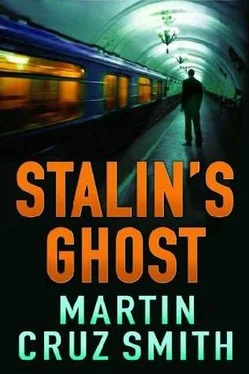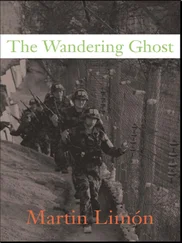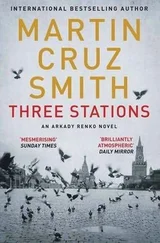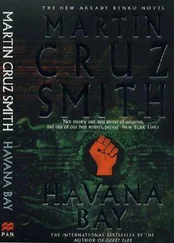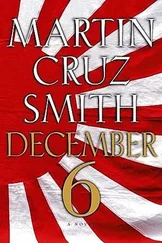Martin Smith - Stalin’s Ghost
Здесь есть возможность читать онлайн «Martin Smith - Stalin’s Ghost» весь текст электронной книги совершенно бесплатно (целиком полную версию без сокращений). В некоторых случаях можно слушать аудио, скачать через торрент в формате fb2 и присутствует краткое содержание. Жанр: Триллер, на английском языке. Описание произведения, (предисловие) а так же отзывы посетителей доступны на портале библиотеки ЛибКат.
- Название:Stalin’s Ghost
- Автор:
- Жанр:
- Год:неизвестен
- ISBN:нет данных
- Рейтинг книги:4 / 5. Голосов: 1
-
Избранное:Добавить в избранное
- Отзывы:
-
Ваша оценка:
- 80
- 1
- 2
- 3
- 4
- 5
Stalin’s Ghost: краткое содержание, описание и аннотация
Предлагаем к чтению аннотацию, описание, краткое содержание или предисловие (зависит от того, что написал сам автор книги «Stalin’s Ghost»). Если вы не нашли необходимую информацию о книге — напишите в комментариях, мы постараемся отыскать её.
Stalin’s Ghost — читать онлайн бесплатно полную книгу (весь текст) целиком
Ниже представлен текст книги, разбитый по страницам. Система сохранения места последней прочитанной страницы, позволяет с удобством читать онлайн бесплатно книгу «Stalin’s Ghost», без необходимости каждый раз заново искать на чём Вы остановились. Поставьте закладку, и сможете в любой момент перейти на страницу, на которой закончили чтение.
Интервал:
Закладка:
“You saw nothing tonight?”
“Well, I saw that soldier.”
“Who?”
“I don’t remember his name, but I saw him on television. It’ll come to me.”
“You saw a soldier but not Stalin.”
“On television. Why can’t they leave poor Stalin alone? It’s a disgrace.”
“Which part?”
“All of it.”
“I think you’re right. I think there’ll be disgrace enough for everyone.”
“You took your time.” Zurin was waiting at the bottom, cashmere coat worn impresario-style on his shoulders and a froth of anxiety in the corners of his mouth.
“Another sighting?” Arkady asked.
“What else?”
“You could have started without me. You didn’t have to wait.”
“But we do. This is a situation of some delicacy.” Zurin said the sighting had taken place, as before, on the last car of the last train of the night; even to the same minute-0132-testimony to Metro punctuality. This time two plainclothes officers had been stationed on the car in case. As soon as they noticed signs of a disturbance they radioed the driver not to leave the platform until all thirty-three passengers of the last car were off. The detectives had taken preliminary statements. Zurin handed Arkady a spiral notebook open to a list of names, addresses, telephone numbers. I. Rozanov, 34, male, a plumber, “saw nothing.” A. Anilov, 18, male, soldier, “maybe saw something.” M. Bourdenova, 17, female, student, “recognized him from a history course.”
R. Golushkovich, 19, male, soldier, “was asleep.” V. Golushkovich, 20, male, soldier, “was drunk.”
A. Antipenko, 74, male, retired, “witnessed Comrade Stalin on the platform.”
F. Mendeleyev, 83, male, retired, “witnessed Comrade Stalin wave from the platform.”
M. Peshkova, 33, female, schoolteacher, “saw nothing.” P. Peneyev, 40, male, schoolteacher, “saw nothing.” V. Zelensky, 32, male, filmmaker, “witnessed Stalin in front of Soviet flag.”
And so on. Of the thirty-three passengers, eight saw Stalin. Those eight had been detained and the rest released. The platform conductor, a G. Petrova, had seen nothing out of the ordinary and was also allowed to go. The notes were signed by Detectives Isakov and Urman.
“Isakov, the hero?”
“That’s right,” Zurin said. “He and Urman were called to another case. We can’t have good men wasting their time here.”
“Of course not. Where is this other case?”
“A domestic dispute a couple of blocks away.”
The platform clock read 0418, the same as Arkady’s watch. Time until the next train stood at 00, because the system wouldn’t start up again for another hour. Without a background rumble of trains the platform was an arcade of echoes, Zurin’s voice popping up here and there.
“So, what do you want me to do?” Arkady asked.
“Nail things down.”
“Nail down what? Someone on a subway puts on a Stalin mask and you pull people off their train?”
“We want to keep the lid on.”
“On a hoax?”
“We don’t know.”
“Are you thinking of mass hallucination? That calls for exorcists or psychiatrists.”
“Just ask some questions. They’re old, it’s past their bedtime.”
“Not theirs.” Arkady nodded toward a rail-thin man chatting up the schoolgirl. She plainly had trouble resisting flattery.
“Zelensky is the provocateur, I’m sure. Do you want to start with him?”
“I think I’ll end with him.”
First, Arkady walked to where the last car had stopped. A service gate and doorway stood at the platform’s end. He hoisted himself up on the gate and saw nothing but electrical cables on the other side. The door was locked. The platform conductor might have had the key and some idea of who had been waiting for the train, but, thanks to Isakov and Urman, she was gone.
“Anything wrong?” the prosecutor asked.
“Couldn’t be better. These were the only two sightings, last night and tonight? Nothing previous?”
“That’s all.”
Arkady questioned witnesses one by one, having each mark on a sketch of the subway car where they had been sitting. The pensioner Antipenko admitted that he had been reading a book and hadn’t had time to switch to his distance glasses before the train rolled into the station. Antipenko’s elderly friend Mendeleyev had slept earlier on the train, although he claimed he awoke when they pulled into the station. Neither of them felt threatened by the platform Stalin. In fact, two ancient babushkas said they recognized Stalin by his benign smile, although neither saw well enough to read the platform clock when Arkady asked them to. Another retiree wore eyeglasses so scratched, the world was a blur, and the final senior witness wasn’t sure if he’d seen Stalin or Father Frost.
Arkady told him, “You’ve been up all night. Maybe you’re tired.”
“They kept us here.”
“I’m sorry about that.”
“I know my granddaughter is worried.”
“Didn’t the detectives call her and tell her you would be late?”
“I couldn’t remember her number.”
“Perhaps if you show me your papers?”
“I lost them.”
“I’m sure there’s something on you somewhere.” Arkady opened the old man’s overcoat and found, pinned to a jacket lapel, a tag with a name, address, and phone number. Also the soiled ribbons and hardware of a Gold Star Hero, Order of Lenin, Red Star, and Patriotic War hero, so many campaign medals that they were stitched in overlapping tiers onto the breast of his suit. This doddering ancient had once been a young soldier fighting the Wehrmacht in the rubble of Stalingrad. “Don’t worry. The prosecutor will call your granddaughter and the trains will be running soon.”
The student, Marfa Bourdenova, changed her mind because she wasn’t clear who Stalin was. Besides, she was out past her curfew and hadn’t been allowed to call home on her mobile phone. If the girl was a little plump it was also clear what a beauty she would soon be, with an oval face, a sharp nose and chin, huge eyes and light brown hair she blew away from her cheek in exasperation. “The reception here sucks.”
From the next bench the filmmaker Zelensky stage-whispered, “Your reception sucks because you’re in a hole, honey, you’re in a fucking hole.” He hunched forward in a scuffed leather jacket and told Arkady, “You can mess with their minds all you want, but I know what I saw. I saw Iosif Stalin standing at this platform tonight. Mustache, uniform, short right arm. Unmistakable.”
“What color were his eyes?”
“Yellow eyes, wolf eyes.”
“Vladimir Zelensky?” Arkady asked to be sure. He felt Zurin creep to the other side of the pillar.
“Call me Vlad, please.” As if it were a favor.
Zelensky stood in the umbra of fame. Ten years before he had been a young director of rough-and-ready crime films, until he sniffed cocaine himself and performed the magic trick of disappearing up his nostril. His smile said the boy was back and the frizz of his hair suggested ideas on the simmer.
“So, Vlad, what did you say when you saw him?”
Zelensky laughed. “Something on the order of ‘Fuck your mother!’ What anyone would say.”
As Arkady remembered, Zelensky got by on porn, grinding out films that required nothing more than two willing bodies and a bed. Films where everyone, including the director, used pseudonyms.
“Did Stalin say anything?”
“No.”
“How long was he visible?”
“Two seconds, maybe three.”
“Could it have been somebody wearing a mask?”
“No.”
“You are a filmmaker?”
“An independent filmmaker.”
“Could someone have rigged a film or a videotape?”
Читать дальшеИнтервал:
Закладка:
Похожие книги на «Stalin’s Ghost»
Представляем Вашему вниманию похожие книги на «Stalin’s Ghost» списком для выбора. Мы отобрали схожую по названию и смыслу литературу в надежде предоставить читателям больше вариантов отыскать новые, интересные, ещё непрочитанные произведения.
Обсуждение, отзывы о книге «Stalin’s Ghost» и просто собственные мнения читателей. Оставьте ваши комментарии, напишите, что Вы думаете о произведении, его смысле или главных героях. Укажите что конкретно понравилось, а что нет, и почему Вы так считаете.
